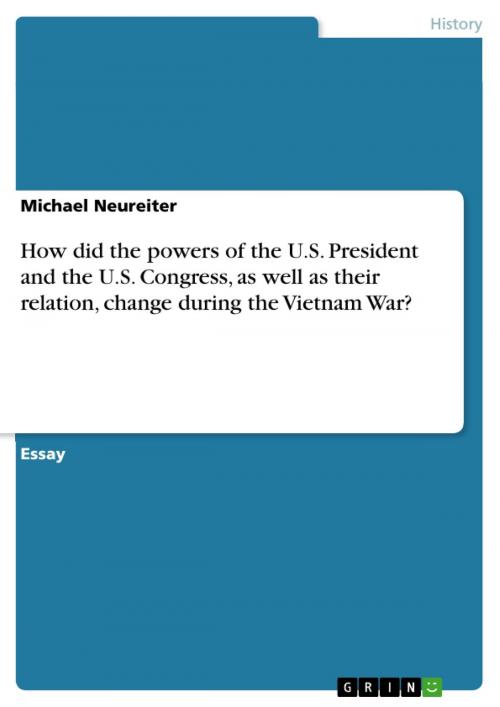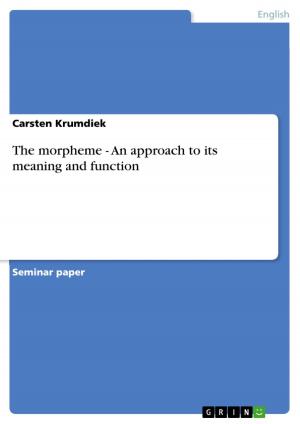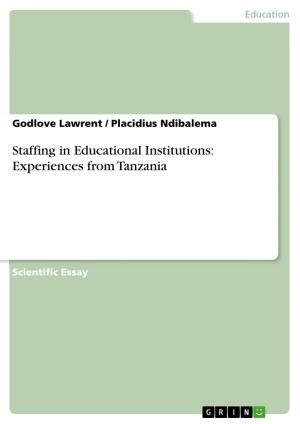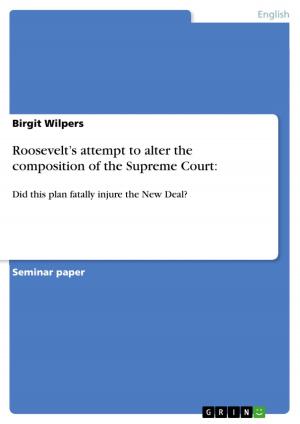How did the powers of the U.S. President and the U.S. Congress, as well as their relation, change during the Vietnam War?
Nonfiction, History, European General| Author: | Michael Neureiter | ISBN: | 9783640870486 |
| Publisher: | GRIN Publishing | Publication: | March 17, 2011 |
| Imprint: | GRIN Publishing | Language: | English |
| Author: | Michael Neureiter |
| ISBN: | 9783640870486 |
| Publisher: | GRIN Publishing |
| Publication: | March 17, 2011 |
| Imprint: | GRIN Publishing |
| Language: | English |
Essay from the year 2010 in the subject History Europe - Germany - Postwar Period, Cold War, grade: 1,0, , course: U.S. History: World War II to Present, language: English, abstract: For many reasons, the Vietnam War poses an outstanding chapter in the history of the United States. First, it proved to be America's longest war, involving mass casualties (over 58,000 U.S. soldiers died during the Vietnam War) and gobbling up billions of dollars. Second, the Vietnam War is said to be the only war America ever lost. Therefore, it eroded morale within the military and influenced U.S. foreign policy for many years to come. Third and probably most important, the effects of the Vietnam War were not limited to foreign affairs, as it also had a great impact on American domestic affairs. The escalating war generated intense political criticism and social protests, as people questioned both the integrity of the South Vietnamese government and the credibility of American military claims that the war was going well. Moreover, the Vietnam War significantly altered the political landscape of the United States, as it, for example, caused a great change in the relation between the U.S. Congress and the presidential office. All too frequent, this aspect of the Vietnam War seems to be ignored, as people are way more concerned with questions regarding the war's necessity and legitimacy. However, in order to get the whole story of the Vietnam War, one must also have a look at its effects on the U.S. polit-ical system. Therefore, in this essay I will examine how the powers of the U.S. President and the U.S. Congress, as well as their relation, changed during the Vietnam War, as they were significantly affected by events that took place in Vietnam.
Essay from the year 2010 in the subject History Europe - Germany - Postwar Period, Cold War, grade: 1,0, , course: U.S. History: World War II to Present, language: English, abstract: For many reasons, the Vietnam War poses an outstanding chapter in the history of the United States. First, it proved to be America's longest war, involving mass casualties (over 58,000 U.S. soldiers died during the Vietnam War) and gobbling up billions of dollars. Second, the Vietnam War is said to be the only war America ever lost. Therefore, it eroded morale within the military and influenced U.S. foreign policy for many years to come. Third and probably most important, the effects of the Vietnam War were not limited to foreign affairs, as it also had a great impact on American domestic affairs. The escalating war generated intense political criticism and social protests, as people questioned both the integrity of the South Vietnamese government and the credibility of American military claims that the war was going well. Moreover, the Vietnam War significantly altered the political landscape of the United States, as it, for example, caused a great change in the relation between the U.S. Congress and the presidential office. All too frequent, this aspect of the Vietnam War seems to be ignored, as people are way more concerned with questions regarding the war's necessity and legitimacy. However, in order to get the whole story of the Vietnam War, one must also have a look at its effects on the U.S. polit-ical system. Therefore, in this essay I will examine how the powers of the U.S. President and the U.S. Congress, as well as their relation, changed during the Vietnam War, as they were significantly affected by events that took place in Vietnam.















